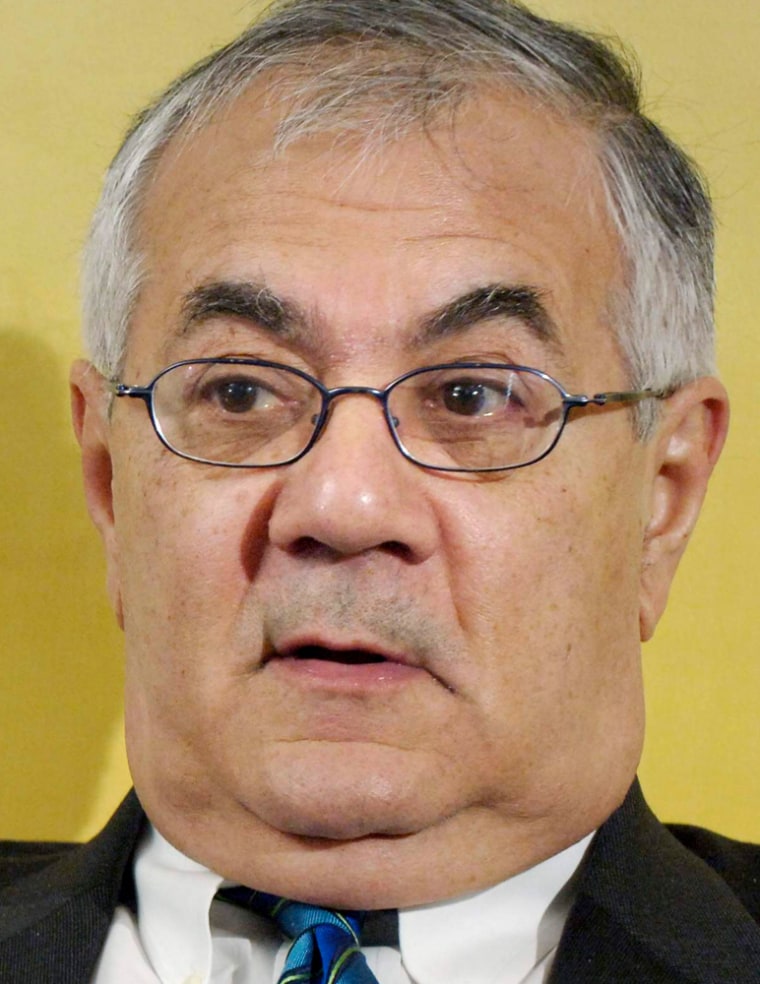The ban on Internet gambling enacted last fall would be overturned under legislation proposed Thursday by a senior House Democrat, but the bill faces long odds in Congress.
Rep. Barney Frank, D-Mass., chairman of the House Financial Services Committee, said the law preventing the use of credit cards to bet online “is an inappropriate interference on the personal freedom of Americans, and this interference should be undone.” More bluntly, he has called the ban “one of the stupidest things I ever saw.”
Because traditional forms of legal gambling exist in nearly every state, Frank said, a continued prohibition on Internet gambling for Americans leaves those who choose to gamble online “without meaningful consumer protections.” He said his bill includes safeguards to ensure that gamblers are at least 18 years old and live in a jurisdiction that permits online gambling, and to prevent compulsive gambling and fraud.
The $12 billion Internet gambling industry is based outside the United States — most of the companies are British — though about half of its customers live in America.
Supporters of the U.S. ban maintain that Internet betting can be addictive and potentially drain people’s savings, a risk they say is especially acute for young people who are frequently online.
Frank acknowledged that the Democratic leadership of the House likely would not support it. The Bush administration also could be expected to oppose the legislation.
The vote for the ban in the House, for example, was 317-93 last year. Lobbying for it were the horse racing industry and professional sports leagues, which argued that Web wagering could hurt the integrity of their sports.
No comparable measure has emerged in the Senate.
“It should come as no surprise that I fundamentally oppose any attempts to repeal or weaken” the 2006 law, the Financial Services Committee’s senior Republican, Rep. Spencer Bachus of Alabama, said in a statement Thursday. “The overwhelming vote in favor of this legislation reflected widespread public concern over the ill effects of illegal Internet gambling on our youth. ... Nothing has changed and I am confident this proposed bill will be rejected.”
The measure signed into law by President Bush in October, which prohibits U.S. banks and credit card companies from processing payments to online gambling businesses outside the United States, took the British-based Internet gambling businesses by surprise. It prompted companies such as Sportingbet PLC and Leisure & Gaming PLC to sell their U.S. operations, and the industry lost an estimated 80 percent of its business as a result.
The arrests last year of two British Internet gambling executives while traveling through the United States highlighted the ratcheting up of the U.S. government’s fight against the industry.
A World Trade Organization panel opened the door to possible commercial sanctions against the United States when it ruled last month that the U.S. law as written unfairly targets offshore casinos. It sided with the twin Caribbean island nation of Antigua and Barbuda, which has argued that Internet gambling is a lucrative source of revenue and provides an income for hundreds of islanders.
The Geneva-based global trade referee said Washington can maintain restrictions on online gambling, so long as its laws are equally applied to U.S. operators offering remote betting on horse racing.
